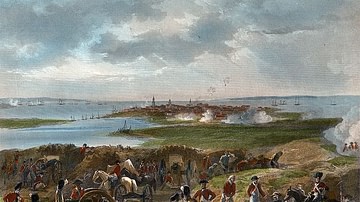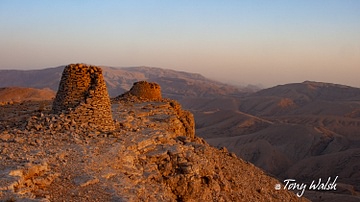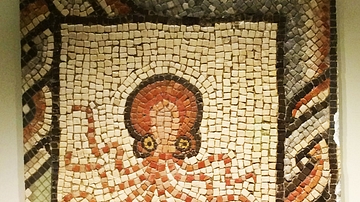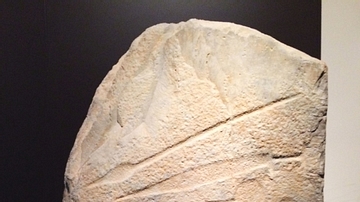Search
Search Results

Definition
Despotate of the Morea
The Despotate of the Morea was a semi-autonomous appanage of the later Byzantine Empire. The Byzantines retook part of the Peloponnese in Southern Greece in 1262 CE, but the Morea was only officially governed by semi-autonomous despots of...

Definition
Islamic Caliphates
Caliphate (“Khilafat” in Arabic) was a semi-religious political system of governance in Islam, in which the territories of the Islamic empire in the Middle East and North Africa and the people within were ruled by a supreme leader called...

Definition
Second Punic War
The Second Punic War (The Hannibalic War) was fought between Carthage and Rome between 218 and 201 BCE. The war involved confrontations in Spain, Italy, Sicily, Sardinia, and North Africa. Hannibal led the Carthaginians, one of the most gifted...

Definition
Hasdrubal Barca
Hasdrubal Barca (c. 244-207 BCE) was the younger brother of the Carthaginian general Hannibal (247-183 BCE) and commanded the forces of Carthage against Rome in Spain during the Second Punic War (218-202 BCE). They were both, along with another...

Article
Siege of Charleston
The Siege of Charleston (29 March to 12 May 1780) was a major military operation during the American Revolutionary War (1775-1783). Hoping to establish a foothold in the American South, British commander-in-chief Sir Henry Clinton led an...

Interview
Oman: The Land of Frankincense - Tony Walsh
While Oman is perhaps the most mysterious corner of the Arabian peninsula to Westerners, the country retains a strong sense of identity, a pride in its ancient past, and unique surprises in the domain of cultural heritage. In this exclusive...

Image
The Barcid Dynasty of Carthage
This infographic illustrates the rise and influence of the Barcid Dynasty, a powerful Carthaginian family that shaped Carthage’s military and political strategy during the third century BCE. Active from circa 260 to 200 BCE, the Barcids played...

Image
Roman Mosaic with Octopus
This mosaic with an octopus is made of limestone and dates from the 2nd-3rd century CE. It is from Villaquejida (León), Spain. (Museo Arqueológico Nacional, Madrid)

Image
Warrior Stela from Bronze Age Iberia
This stela is from Solana de Cabañas (Cabañas del Castillo, Cáceres), Spain and dates from the Late Bronze Age. It is made of slate, and it was unearthed in the late 19th century CE. This was the first specimen to be discovered in a series...

Image
Battle of Guadelete (711 CE)
Batalla de Guadalete (Spanish for "The Battle of Guadalete") by the Spanish painter Salvador Martinez Cubells (1845-1914 CE). The painting depicts the historical Battle of Guadalete in 711 CE, fought between the Umayyad Caliphate and Rodric...